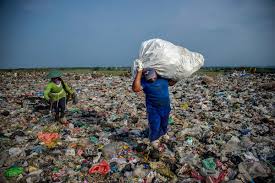When the tax was first established in 2019, it was meant to be applied to single-use plastic products like packaging, bags, and bottles. By imposing a tax of IDR 200 (USD 0.02) per plastic bottle, especially on the food and beverage sector, the aim was to lower the usage of plastic and the harm it causes to the environment.
Nonetheless, the proposal encountered substantial resistance from trade associations such as the Aromatic, Olefin, and Plastic Industry Association (Inaplas). These organizations contended that the tariff would hurt Indonesian manufacturers, particularly those who depended on plastic packaging. The excise would decrease domestic demand for plastic products and potentially promote imports of untaxed foreign goods, stressed Inaplas Secretary-General Fajar Budiono. He added that there are now no reasonably priced alternatives to plastic, which makes it necessary owing to its affordability and durability.
Critics added that the levy will disproportionately hurt customers and drive up the cost of necessary bottled water, especially in areas where tap water is contaminated. Ultimately, the tax plan was shelved due to worries about the financial effects on individuals and businesses alike.

